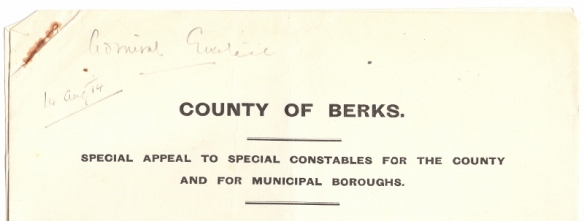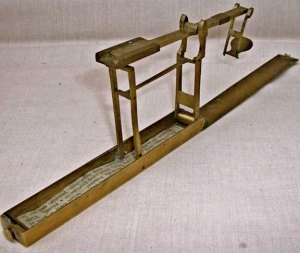In August 1914, the Chief Constable of Berkshire, Major Arthur Faulconer Poulton (1858-1935)1 made an appeal to Berkshire’s Special Constables to organise a guard on all vulnerable points liable to outrage. Suggested points included: rail and river bridges (especially over the Thames), ‘water works, reservoirs, lighting works, magazines, churches, town halls and other large buildings’.
In addition, Special Constables were expected to register and watch all aliens, specifically ‘alien enemies viz those of German nationality who are now under certain restrictions‘.
By December, the threat from the enemy within was compounded by a real fear of invasion. I have a copy of a confidential circular issued under the remit of the Defence of the Realm Act (DORA) instructing Berkshire’s Emergency Defence Committees in the event of ‘a landing of a hostile force in the South or South East coast’. It states that as soon as the order was issued to ‘denude’ Kent, Sussex and Surrey of all ‘cattle, sheep, horses, vehicles (both horse and motor), consumable stock, suitable for man or beast and all other commodities which may be considered of use to an invading force’, both people and resources were to be removed to special centres in Buckinghamshire and Berkshire. Continue reading


